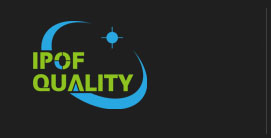
|
China
|
CCC certificate The 3C certification is called the “Compulsory Product Certification System”. It is a product conformity assessment system implemented by the Chinese government to protect consumers' personal safety and national security, strengthen product quality management, and implement laws and regulations. The so-called 3C certification is China's compulsory product certification system, the English name China Compulsory Certification, the English abbreviation CCC. |
|
CQC certificate CQC logo certification is one of the voluntary product certification services carried out by China Quality Certification Center. The CQC logo is used to indicate that the products meet the relevant quality, safety, performance, electromagnetic compatibility and other certification requirements. The scope of certification involves mechanical equipment and electrical equipment. More than 500 kinds of products such as electrical appliances, electronic products, textiles and building materials. CQC logo certification focuses on safety, electromagnetic compatibility, performance, and hazardous substances (RoHS) indicators that directly reflect product quality and affect consumers' personal and property safety. It aims to safeguard consumer interests, promote product quality, and enhance domestic enterprises. International Competitiveness. |
|
|
SRRC certificate SRMC certification (also known as SRRC certification) SRRC is the State Radio Regulatory Commission of the People's Republic of China. Since June 1, 1999, the Ministry of Information Industry (MII) mandatory regulations, all Radio component approval certification (Radio Type Approval Certification) must be obtained for radio component products sold and used in China. The State Radio Monitoring Center (SRMC), formerly known as the State Radio Regulation Committee (SRRC), is the only institution in mainland China that has been authorized to test and certify radio model approvals. |
|
|
Japan
|
PSE certificate PSE certification is a mandatory safety certification in Japan to prove that electrical and electronic products have passed the safety standards of the Japanese Electrical and Material Safety Act (DENAN Law) or international IEC standards. Japan's DENTORL Act (Electrical Devices and Materials Control Act) stipulates that 498 products must pass safety certification when entering the Japanese market. Among them, 165 types of A products should obtain the PSE mark of the diamond shape, and 333 kinds of B products should obtain the round PSE mark. |
|
TELEC certificate The Japanese Radio Law requires model approval for designated radio equipment (ie, compliance with technical regulations). TELEC certification is mandatory. The certification body is TELEC (Telecom Engineering Center), which is recognized by the MIC in the scope of designated radio equipment. It is the main registered certification body for Japanese radio equipment compliance certification. TELEC is also called MIC certification in Japan. TELEC is one of the license issuing agencies for MIC, so it is collectively called TELEC certification. |
|
|
JATE certificate The Ministry of Management and Home Affairs, Post and Telecommunications (MPHPT) stipulates in the Japan Telecommunications Communications Commercial Law that Japanese telecommunications equipment is subject to compulsory certification. The telecommunications communications business statutory was established in 1984, and in Article 68, MPHPT authorized qualified agencies to implement the technical qualifications. JATE certification is a common name for the Japanese telecommunications law. For mobile phone products, it is generally required to comply with the Japanese Telecommunications Law (commonly known as JATE certification) and the radio wave method (commonly known as TELEC certification) test requirements before being legally listed. |
|
|
VCCI certificate VCCI is Japan's EMC certification mark, managed by the Voluntary Control Council for Interference by Information Technology Equipment. VCCI certification is not mandatory, but information technology products sold in Japan are generally required to be VCCI. Certification. The manufacturer should first apply to become a member of VCCI before using the VCCI logo. In order to be recognized by VCCI, the EMI test report provided must be issued by a VCCI accredited testing organization. Japan currently has no standards for immunity. |
|
|
GITEKI certificate In Japan, as long as products related to wireless devices, such as laptops, APs, routers, landlines, mobile phones, LTE to Wi-Fi, Bluetooth headsets, etc., all need to be certified by giteki, and on certified products, Attach or print the giteki logo and the number issued. Without this certification, direct sales in Japan are illegal and will be severely punished. Giteki certification is mandatory. |
|
|
Korea
|
KC |
| KCC | |
|
Thailand
|
NBTC |
|
India
|
WPC |
| BIS | |
|
Singapore
|
PSB |
| IMDA | |
|
Indonesia
|
SDPPI |
|
Malaysia
|
SIRIM |
